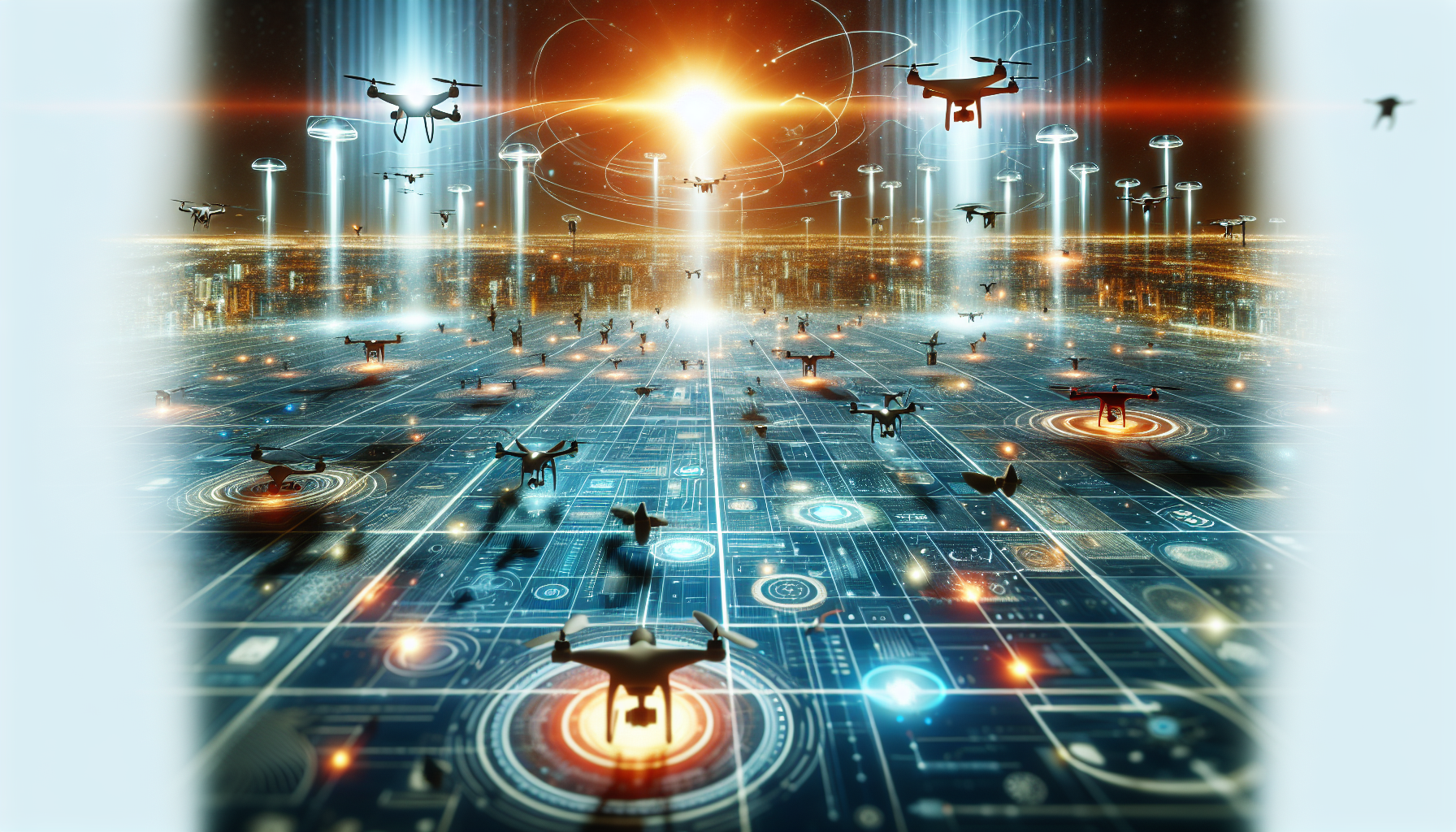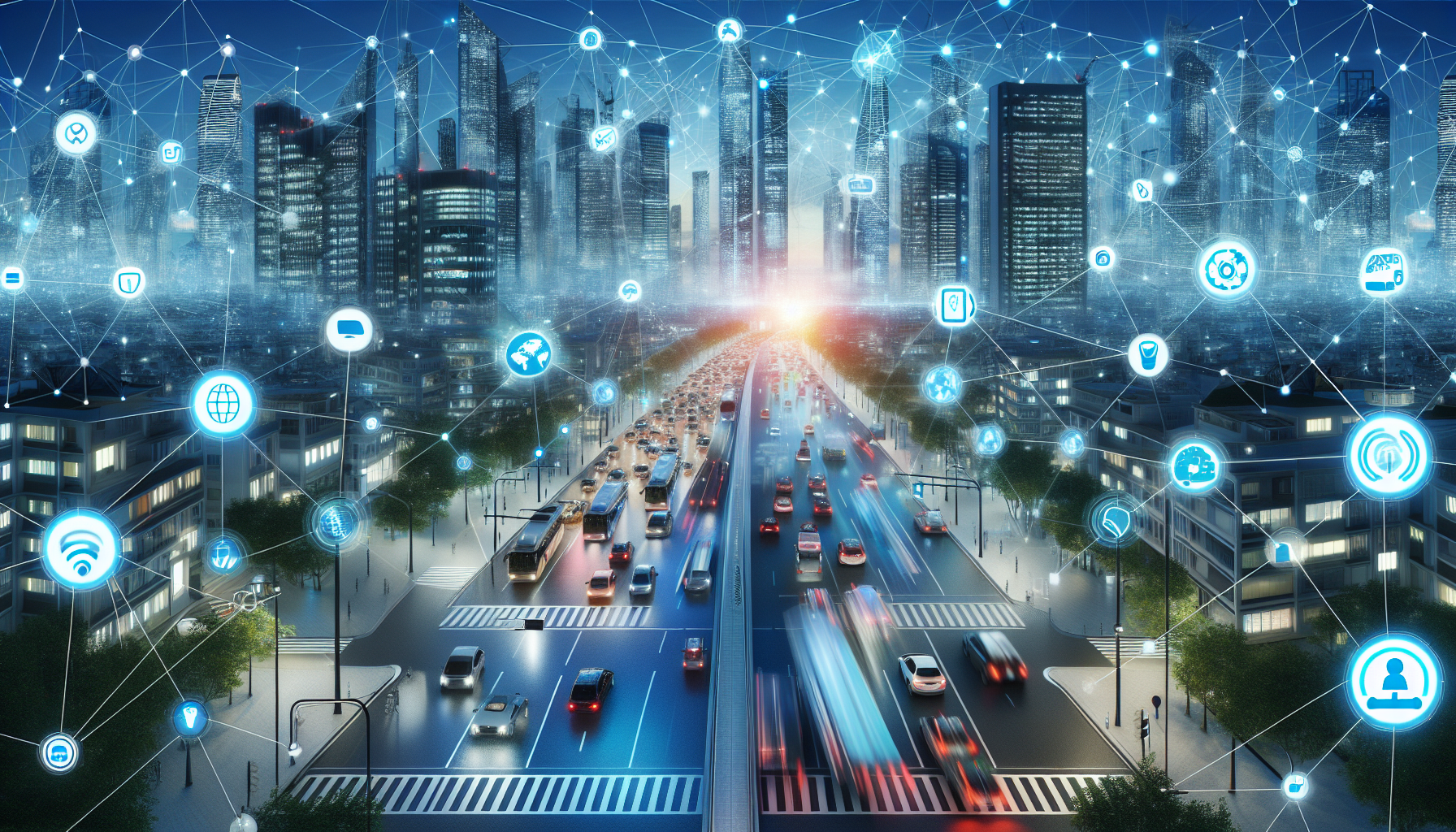Advertisements
With the advancement of technology, drones are no longer just toys and have started to play a fundamental role in several areas, providing real solutions to everyday problems. These small unmanned aircraft have revolutionized sectors such as agriculture, security, logistics and even in rescuing lives in emergency situations. The future of drones promises to go far beyond entertainment, positively impacting society in a significant way.
Advertisements
With the ability to fly at great heights and advanced technologies, drones have stood out for their versatility and efficiency. In agriculture, for example, these devices are used to monitor crops, identify pests and optimize the application of agricultural pesticides. In the security area, drones are used to patrol hard-to-reach areas, helping to prevent crimes and control crowds.
Furthermore, drones have been essential in rescue missions, being able to reach places inaccessible to traditional rescue teams. With high-resolution cameras and the ability to transport essential supplies, these aircraft have saved lives in situations of natural disasters and accidents. Given this promising scenario, it is clear that the future of drones holds many innovations and practical applications that will transform our daily lives in a positive way.
The impact of drones on society
Drones have become an increasingly present technology in our daily lives, going far beyond recreational use and toys. These flying devices have demonstrated incredible potential to bring real and innovative solutions in several areas, positively impacting society as a whole.
Advertisements
Applications in agriculture
In agriculture, drones have been used to monitor crops, enabling faster and more accurate identification of pests, diseases and irrigation needs. This allows farmers to optimize the use of inputs and increase crop productivity.
- Crop monitoring
- Identifying pests and diseases
- Optimization of input use
Applications in the security area
In the area of security, drones have been used to monitor hard-to-reach areas, helping to combat crime and prevent incidents. In addition, these devices can be used in search and rescue operations, speeding up the rescue of victims in emergency situations.
- Monitoring of hard-to-reach areas
- Fighting crime
- Search and rescue
Applications in logistics
In logistics, drones have been tested to make fast and efficient deliveries of goods, especially in urban areas. This technology promises to revolutionize the transportation sector, making deliveries faster and reducing operating costs.
- Fast deliveries
- Reduction of operational costs
- Optimization of freight transport
In short, the future of drones goes far beyond toys, bringing real and innovative solutions to various areas. With the advancement of technology and improvement of these equipment, we can expect more and more surprising applications that will positively impact society and transform the way we carry out various activities in our daily lives.

Given the growing popularity and evolution of drones, it is crucial that the regulations and standards governing their use are constantly improved to ensure the safety and efficiency of operations. Effective regulations must not only address issues such as flight safety, privacy and integration with other technologies, but also be flexible enough to keep up with the rapid pace of innovation in the sector. In addition, it is necessary to invest in research and development to further explore the potential of drones, allowing these devices to be used effectively in sectors such as agriculture, logistics, environmental monitoring, public safety and even in the transportation of cargo and passengers. The advancement of drone technologies can bring great benefits, such as reducing operating costs, increasing efficiency in various activities and even creating new business models. For this to happen in a sustainable and beneficial way for society, collaboration between companies in the sector, government institutions and civil society is essential. With an integrated and regulated approach, the future of drones promises to transform various industries, bring more innovations to the market and improve people's quality of life, providing faster and more accessible solutions to complex problems.
Conclusion
In conclusion, drones are becoming an essential tool in different sectors of society, going beyond the simple function of toys and transforming into real and innovative solutions. With applications in agriculture, security and logistics, these flying devices have demonstrated an impressive potential to optimize processes, increase efficiency and reduce operating costs.
In agriculture, drones allow for precise monitoring of crops, identifying pests and diseases quickly and effectively. In the area of security, these devices help combat crime, monitor hard-to-reach areas and carry out search and rescue operations. Furthermore, in logistics, drones are being tested to make fast and efficient deliveries, revolutionizing the transportation of goods.
With the advancement of technology and the continuous improvement of drones, we can expect more and more surprising applications that will positively impact society and transform the way we carry out various daily activities. Thus, exploring the sky with drones goes far beyond entertainment, bringing concrete and beneficial solutions to different areas, promoting progress and innovation.
In the near future, drones have the potential to transform even more sectors, driving innovation in significant ways. Agriculture, for example, can benefit from real-time data analysis, enabling faster and more accurate decisions about irrigation, fertilization and pest control. In the security sector, the ability to operate in hard-to-reach locations can facilitate monitoring and rescue work, as well as optimize urban surveillance. In logistics, drones can enable faster and more efficient deliveries, reducing environmental impact by minimizing road traffic and accelerating distribution processes. With the continued evolution of technologies associated with drones, such as artificial intelligence and state-of-the-art sensors, it is possible to envision a future where they will become even more autonomous and integrated into our daily activities. Increasing collaboration between governments, companies and research institutions, combined with appropriate regulations, will be essential to ensure that drones are used safely, ethically and effectively. In this way, drones will not only continue to revolutionize various industries, but will also contribute to a more connected and sustainable world.




